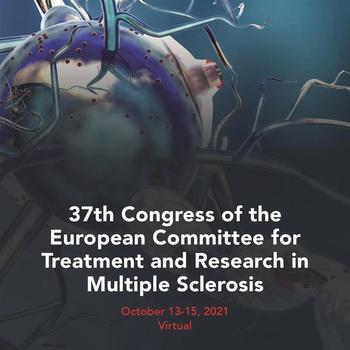
Included participants were enrolled in Medicaid, which includes some of the most vulnerable patients in this population, investigators said.

Abby Reinhard, Assistant Editor for NeurologyLive, has covered medical news for MJH Life Sciences, NeurologyLive’s parent company, since 2021. Email her at [email protected]

Included participants were enrolled in Medicaid, which includes some of the most vulnerable patients in this population, investigators said.

Mona Bostick, RDN, LDN, MSCS, gave her perspective on nutrition in MS, popular elimination diets, and the role registered dietitians can play in the multidisciplinary care model.

Amit Bar-Or, MD, FRCPC, FAAN, FANA, commented on his presentations at CMSC 2021, one of which focused on COVID-19 vaccination, which experts do not believe poses risks for those on disease-modifying therapies.

Brian Hutchinson, PT, MSCS, commented on the Multiple Sclerosis Achievement Center program, which includes patient data spanning a 3-year period.

Investigators interviewed 20 community neurologists about the impact of the pandemic on their professional and personal lives, finding 4 main themes among their responses.

Vikram Bhise, MD, outlined useful questions to include in conversation when discussing the transition to adulthood for patients with pediatric multiple sclerosis.

Vikram Bhise, MD, discussed findings recently presented at CMSC 2021, where teenagers with multiple sclerosis were interviewed to identify perceptions of QOL during the transition to adulthood.

Data presented at CMSC 2021 suggest worse COVID-19 outcomes were associated with patients with neuromyelitis optica spectrum disorder and other comorbidities.

Data further investigated the impact of how individual disease-modifying therapies affect outcomes for this patient population.

Investigators provided 4 strategies for health care providers to implement when speaking to patients with MS, in an effort to improve communication between both parties.

Patient data were evaluated over a 3-year period, with analyses from baseline, year 1, and year 2 presented at previous CMSC meetings.

The NeurologyLive staff compiled highlights from our discussions with experts in one convenient location, following ECTRIMS 2021.

Investigators found that stress was likely to be the most modifiable risk factor.

Data from a recent study suggest that symptoms of potential obstructive sleep apnea influence this mediation.

Deborah Miller, PhD, commented on strategies to maintain patient-provider communication following the discontinuation of disease-modifying therapies in MS.

Findings from the phase 3 REST-ON trial of the investigational sodium oxybate formulation show treatment improves sleep latency response and cataplexy response in patients with narcolepsy.

Megan Weigel, DNP, APRN-C, APHN-C, MSCN, discussed findings from a study of integrative medicine via a virtual, 6-week workshop, which produced varied results.

Patients with chronic insomnia were included in the study to understand whether priming is necessary for partial reinforcement of treatment responses.

The workshop included weekly virtual meetings on journaling, meditation, yoga therapeutics, among other activities.

Action is not anticipated to be taken this month, with a new target action date to be provided.

Investigators concluded that treatment with high-efficacy disease-modifying therapies was a protective factor in disease prognosis.

Data presented at the ECTRIMS Congress 2021 noted immunity was reduced in patients taking anti-CD20 monoclonal antibodies.

Lawrence Steinman, MD, Zimmermann Professor of Neurology and Neurological Sciences, and Pediatrics at Stanford University, discussed findings presented at ECTRIMS 2021.

After vaccination, patients showed no increased risk of relapse activity, but had varied immune response depending on the disease-modifying therapy they were treated with.

Investigators found that Hispanic and African American patients had an increased risk of developing ambulatory disability, when compared to Caucasian patients with MS.

Investigators highlighted the need to integrate research frameworks to analyze and understand these interrelationships, developing appropriate interventions for the Black, Latinx, and Hispanic populations with NMOSD and MS.

A large-scale rural population study included approximately 27,935 men and women, finding that sleep quality might predict risk of coronary heart disease.

Investigators used the Baveno classification to group patients at diagnosis of obstructive sleep apnea and again after 5 years.

Clinical data on the investigational therapeutics, DNL343 and SAR443820/DNL788, were presented at the 2021 Annual Northeast ALS Meeting this month.

Preclinical results showed promise for the investigational formulation in reducing seizures, prompting the patent filing.